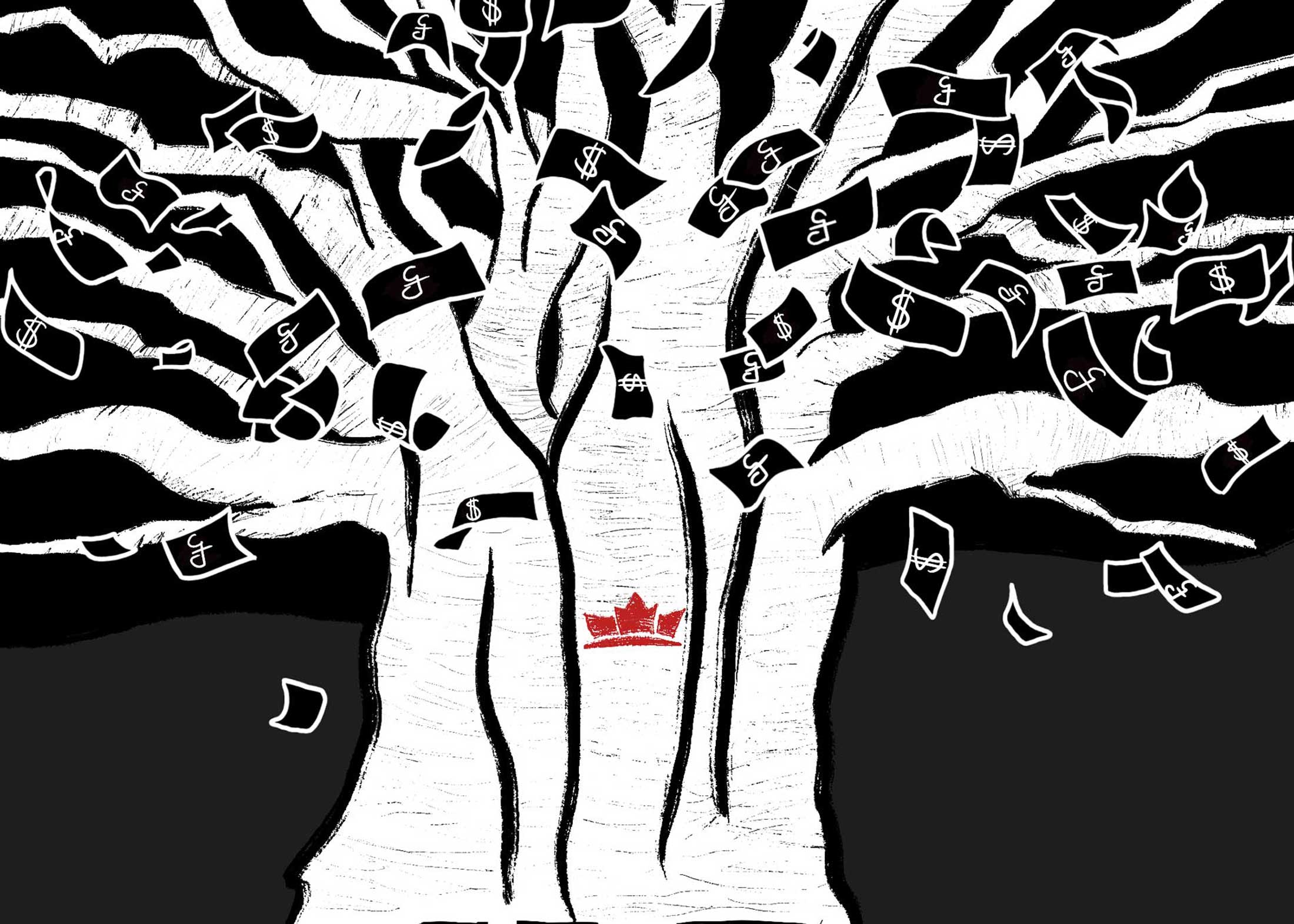
Part I:
Chinese courts go after ‘notorious’ Cambodian conglomerate
Under Cambodian patronage, the Prince Group netted billions; Chinese courts accuse it of massive money laundering.
Sahajak Boonthanakit, a Thai actor, will never forget the day he met Chen Zhi.
“He was very much – I don’t want to make this too dramatic – but very much like a godfather. He didn’t say much, I believe, except hello,” Sahajak recalled in an interview with RFA. “He seemed so powerful.”
Chen, a Chinese émigré, is indeed one of Cambodia’s best-connected tycoons. At the time of the 2018 meeting, he held a position equal to secretary of state as an adviser to Cambodia's Interior Ministry. He later became an adviser to then-Prime Minister Hun Sen and today holds the same position for Hun Sen’s successor and son, Prime Minister Hun Manet, according to royal decrees granting him the roles. His Prince Group conglomerate, which includes real estate, malls, banks and more across Cambodia, has raked in billions of dollars.
To Sahajak, though, the short, pale, goateed 30-year-old was just the enigmatic “money man” financing his latest film and hosting a meal at a Phnom Penh villa overlooking the Mekong river.
After luxury cars ferried the cast and crew to Chen’s home, Sahajak and his colleagues were led to a banquet hall. A large round table seating roughly 20 was laid with fine wines and delicacies, including shark-fin soup, which regularly sells for hundreds of dollars a bowl.
The film they were celebrating was Cambodia’s first attempt at a homegrown, Hollywood-style action flick. “The Prey” centers on Xin, a Chinese detective wrongly imprisoned in a remote Cambodian prison while working undercover to penetrate a violent gang engaged in unspecified but lucrative cybercrimes.
In backing Cambodia’s first big-budget action movie, Chen likely sought to establish himself as a tycoon of consequence.
But it was also a sort of Freudian slip of the checkbook. Chinese police have been investigating whether much of Chen’s wealth is drawn from illegal activities similar to those featured in the film, RFA has learned.

Previously unreported Chinese criminal court judgments dating from 2020 to 2022 describe Chen’s Prince Group as a “notorious transnational online gambling criminal group” that has generated at least 5 billion yuan ($700 million) in illicit revenue. In May 2020, Beijing police established a special task force to investigate the Prince Group, court records show. Since then, there have been at least seven judgments from separate Chinese provincial courts convicting low-level Prince Group or Prince Group-linked employees of gambling and money laundering offenses.
The Prince Group itself and Chen so far do not appear to have become the subjects of a Chinese prosecution. A representative of Prince Group told RFA the company denies all the allegations, which it believes are the result of “impersonation by criminal elements.”
But to understand how Prince Group could draw such scrutiny, it is necessary to look at how Chen transformed from an unknown small business owner in his native China to a multibillionaire Cambodian citizen. Today, he boasts deep connections to Cambodia’s most powerful officials, which may well have protected him and other Prince Group executives — at least thus far.
This is the first of three stories examining how his Prince Group came to rise so rapidly, where the wealth came from and why Chinese law enforcement is looking at it so closely.
A princely rise to power
Chen was born on Dec. 16, 1987, in Fujian, which has for centuries been a hub of international trade. He was “a young business prodigy,” according to a biography posted on the website of DW Capital Holdings, the Singapore fund manager for his personal investments. Before the age of three, the biography claims, he was assisting with a family business in Shenzhen.
Chen’s first solo venture was apparently a small internet café in Fujian’s capital, Fuzhou, according to the website. In 2011, the bio noted, Chen sailed off into the “uncharted waters of real estate development in Cambodia.”
Chen’s business ventures came into sharper focus when he emigrated to Cambodia, where opportunities abound for the smart and well-connected.
His first firm was a Phnom Penh-based real estate company established the year he emigrated, according to bank records seen by RFA. In 2015, he founded Prince and it soon became an omnipresent brand on the streets of Cambodian cities.
Its real estate arm, the Prince Group, played a major role in the transformation of Sihanoukville from a quiet, if seedy, coastal resort to a Chinese casino boomtown. Having seen healthy returns on its thousands of Sihanoukville apartments and hotels, the Prince Group branched out into Phnom Penh condominiums, supermarkets and shopping malls. Within a year of its founding, they began offering banking services as a private microfinance institution. Three years later, the group received its commercial bank license.
As Chen’s businesses were growing, so too was his political capital.
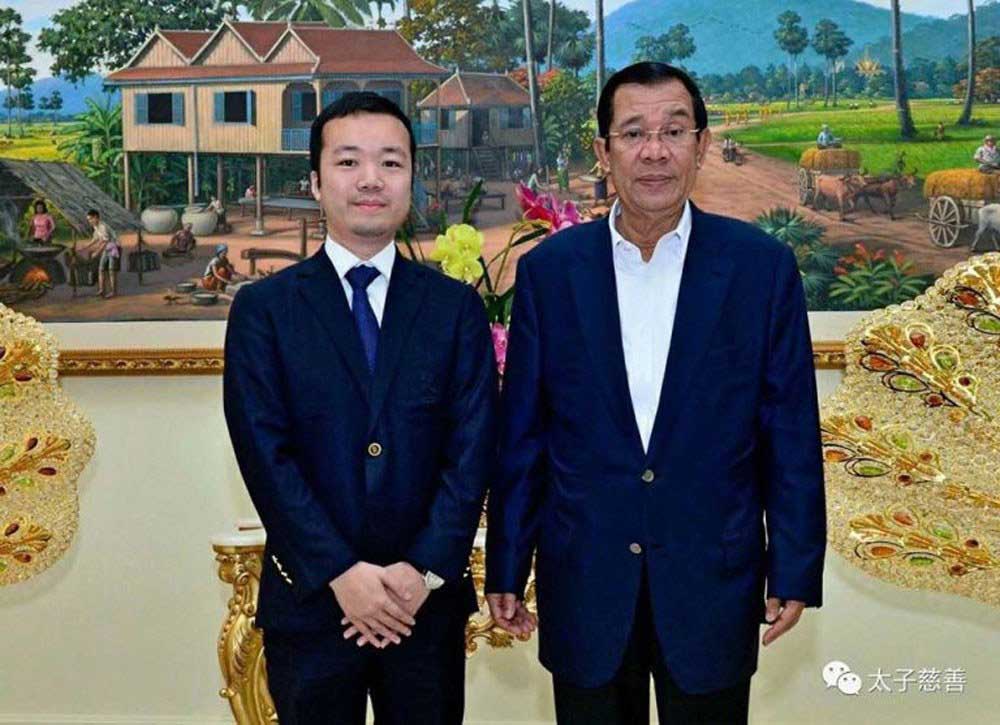
On Feb. 16, 2014, Chen was naturalized as a Cambodian citizen. Naturalization – which requires an investment or government donation of about $250,000 – has become an increasingly popular route for wealthy foreigners, but few have made the personal inroads Chen has. Three years later, a royal decree declared him an adviser to the Interior Ministry. While unpaid, the role gave Chen status in Cambodia equivalent to that of an undersecretary of state.
Weeks after he received that title in 2017, Chen went into business with Sar Sokha. At the time, Sokha’s father was the powerful interior minister. In 2023, Sokha took over the position himself.
Chen and Sokha’s business – Jinbei (Cambodia) Investment Co. Ltd. – was dissolved in 2021, but it was the first of five companies with names featuring the word Jinbei established by Chen and other Prince executives, according to Cambodian business records. Together, the companies formed the Jinbei Group, whose website today boasts of $300 million invested in the Cambodian tourism sector.
Though they are separate entities, so close is the association between the companies that Chinese authorities have called Jinbei a “subsidiary” of Prince in court documents linking the two – a description Prince Group rejects.
Jinbei’s flagship is arguably a seven-story, 16,500 square meter Sihanoukville hotel and casino called the Jinbei, or Golden Shell, in Mandarin. It opened in 2017.
The resort, which boasts 43 gaming tables spread over a 2,000 square meter casino floor, and two V.I.P. saloons, was one of more than 100 casinos to open in Sihanoukville in the years leading up to 2019 – boom years that saw the city feted as a new Macau.
Speaking to Macau Business in 2019, Jinbei’s marketing manager, Victor Chong, attributed this flourishing to the Cambodian government’s “pro-business” stance, under which he said a casino license was issued to anyone willing to pay the $40,000 annual fee.
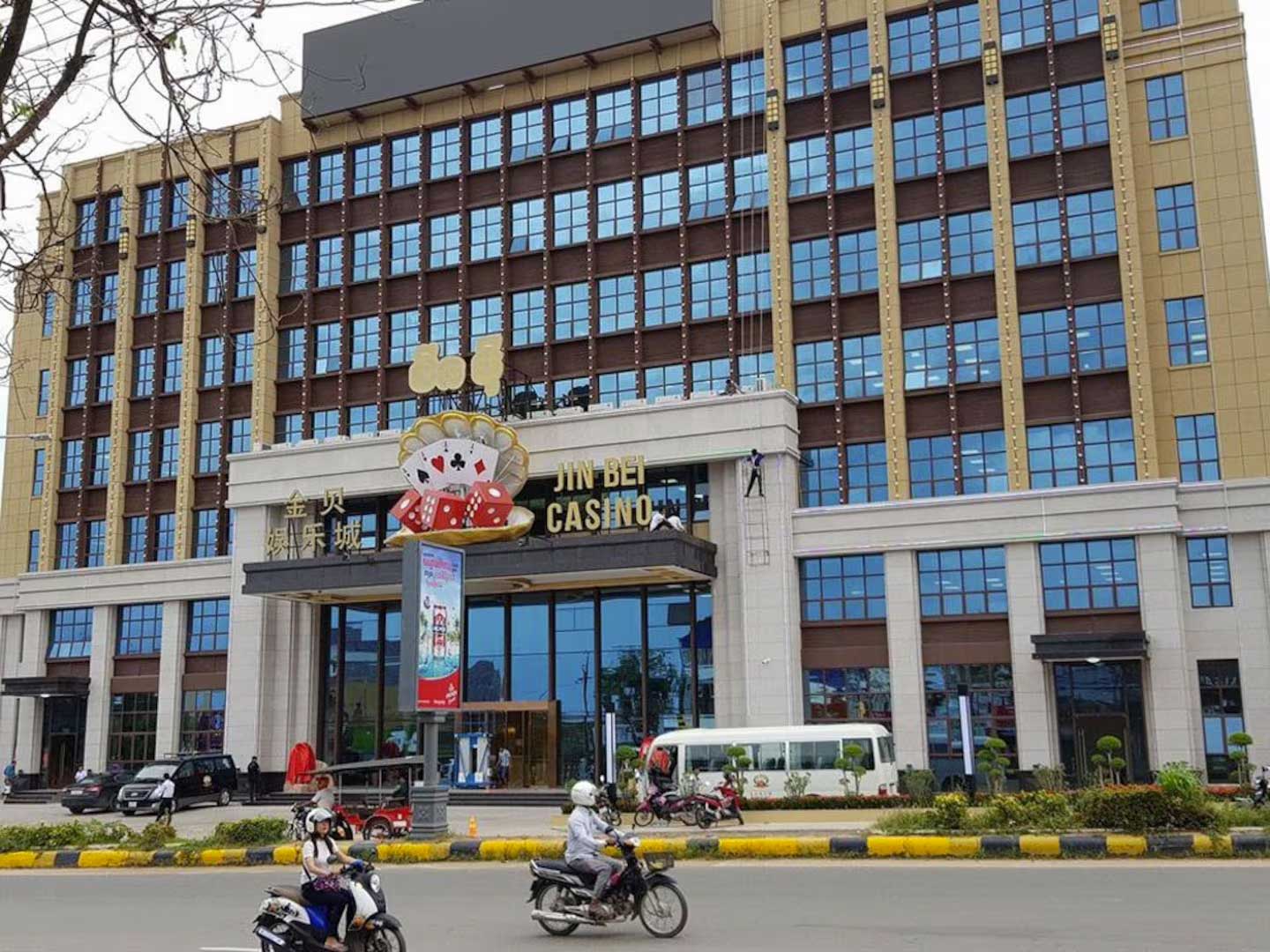
Online, under the table
Though the laws are not always enforced, gambling is illegal for Cambodian citizens. It was Chinese nationals who made up most of the customers in Sihanoukville’s gambling dens as well as the lion’s share of proprietors.
Throughout the mid- and late-2010s, the gamblers were joined by an influx of Chinese gangsters looking to make quick money as loan sharks and extortionists. Bodies started washing up on the beach. Prostitution, illegal in Cambodia, flourished. Cybercriminals, who had long used Sihanoukville as a base, exploded in numbers. Many scammers targeted their compatriots back in China.
A sense of impunity began to reign with brazen gangland-style shootings in the streets and at restaurants. The intended victims were invariably Chinese, although Cambodians were occasionally caught in the crossfire.
The atmosphere drew China’s ire – but what may have troubled Beijing even more than the upswing in crimes against its nationals was the business model many of the casinos used. Most were hosting online gambling websites targeting customers in China, a clear violation of Chinese law.
Citing the rising crime, and likely bowing to pressure from Beijing, Prime Minister Hun Sen in 2019 outlawed online gambling operations. The consequences for Sihanoukville were nearly instantaneous. More than 200,000 Chinese workers and entrepreneurs abandoned the city, and thousands more were stuck without funds to get home.
The pandemic, China’s tight travel restrictions and its domestic economic struggles have only compounded the problems. Four years on and Sihanoukville’s skyline is a mess. At night, the blinking lights of the few remaining casinos glimmer through skeleton frames of half-finished skyscrapers, abandoned mid-construction.

But if there are losers here, the Prince Group isn’t one of them.
On a visit by RFA last year, Jinbei was still welcoming guests through its doors under a gigantic neon clam filled with lucky red dice. The multi-story Prince Mall, home to luxury goods stores, a videogame arcade and the Prince Supermarket, replete with lobster tanks, still beckoned the odd shopper. And at the heart of the mall’s ground floor a display stand for the group’s real estate arm showcased architects’ models for coastal and metro skyscraper apartments.
Even the Nonni II, Chen’s $24 million superyacht with an onboard home cinema and a disco bar, still could be seen docked at Sihanoukville’s ports from time to time.
What has allowed Prince to flourish while so many competitors saw their bubbles burst? The answer, according to court documents, is crime – on a massive scale.
High-tech money mules
According to court records seen by RFA, Chinese law enforcement began openly investigating the Prince Group in 2020 and, in particular, whether at least a third of its estimated $2 billion investment value came from illegal online gambling operations.
In May 2020, the Beijing Municipal Public Security Bureau created a group called the 5.27 Special Task Force. It was formed “to investigate and handle the case of the notorious transnational online gambling criminal group, known as the 'Prince Group,' in Cambodia,” according to a 2021 court judgment. Prince spokesman Gabriel Tan wrote in an email that this task force “is not related to any activities of Prince Holding Group.” In a follow-up note he said that any explicit mention of Prince within court documents is due to “ impersonation issues.”
The judgment describing the task force – from a district court in Henan – was one of several issued in different provinces against individuals linked to the Prince Group who are accused of money laundering and gambling.
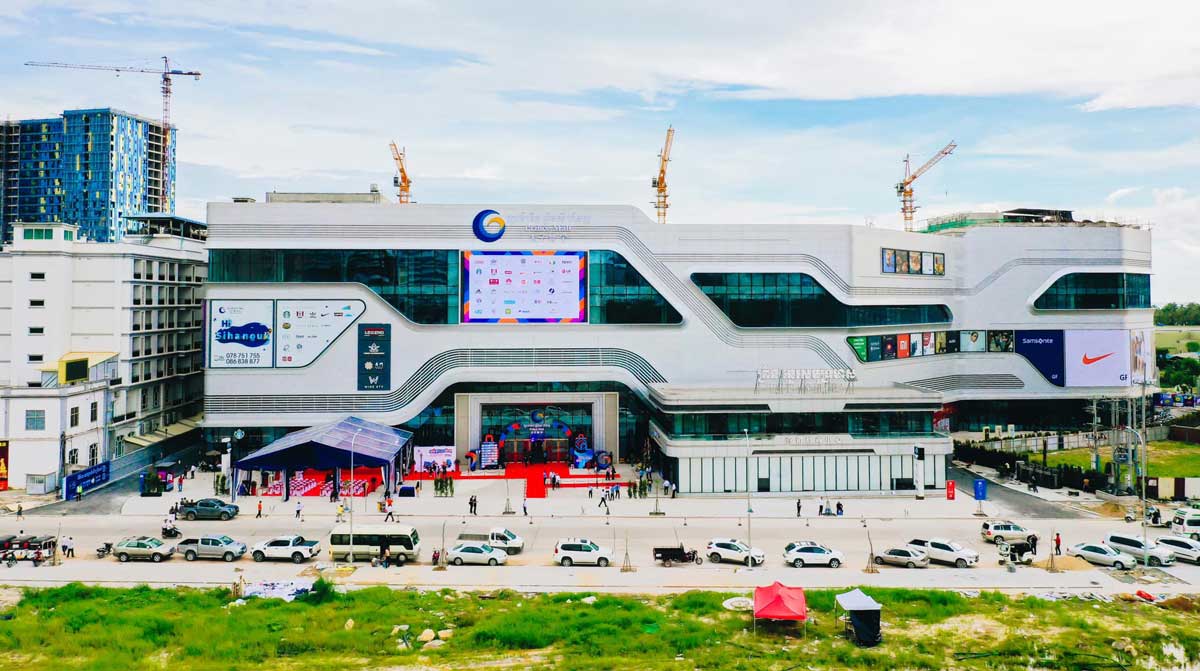
Some of these individuals worked directly for the conglomerate, while others worked for Prince-linked companies, including Jinbei. One judgment describes Jinbei as “a subsidiary of the Cambodian Prince Group” that “has developed a series of gambling software and put it on the Chinese network platform.”
The Prince Group is also accused of continuing to run the type of online casinos Hun Sen banned in 2019, the court documents suggest.
Chinese citizens are allowed to move only $50,000 out of the country each year. Those capital controls would stymie the efforts of anyone trying to run illicit online casinos, such as the Prince Group has been accused of doing.
The solution Prince is alleged to have arrived at, the Chinese courts found, was employing a vast network of individuals to ferry bank cards between China and Cambodia. In all, the task force identified 458 people who had allegedly moved money in this way for the Prince Group.
One such money mule, Guo Caina, was 28 when in March 2018 she was recruited from her hometown of Luoyang to work for Prince in Cambodia, according to the court judgment against her. Her job would be a mix of customer service and bookkeeping, she had been told. Once in Cambodia, Guo handed over four Chinese bank cards in her name in exchange for 1,000 yuan ($140) per card. She quit the company after one day and went back to China but was rebuffed when she asked to have her bank cards returned. By the end of April 2018 more than 140 million yuan ($19.5 million) in gambling funds had passed through her bank accounts, according to the judgment.
Guo pled guilty to being part of a conspiracy to open a casino. She was given a suspended sentence and fined 30,000 yuan ($4,200).
Guo's case is far from unique. The court judgments reviewed by RFA are littered with mules like Guo being convicted for processing gambling funds, so the Chinese believe, on behalf of the Prince Group and Jinbei.
A July 2022 announcement by the Wancang County Court in Sichuan province estimated the Prince Group’s illicit profits from gambling activities since 2016 at more than 5 billion yuan ($700 million).
Multiple attempts to reach Chen were unsuccessful, but Prince spokesman Tan told RFA that the company “categorically denies any involvement with Jinbei Group and the alleged online gambling operations.”
“The references to ‘Cambodia Prince Group’ in the Chinese court documents are likely the result of impersonation by criminal elements,” Tan wrote in an email, adding that the company is “aware of multiple instances where our company's name has been misused by unauthorized entities, individuals and criminal elements.”
He similarly denied that the company had made use of Chinese employees’ bank cards to transfer online gambling funds, calling the allegations “completely unfounded with respect to the Prince Holding Group.” Jinbei could not be reached for comment.
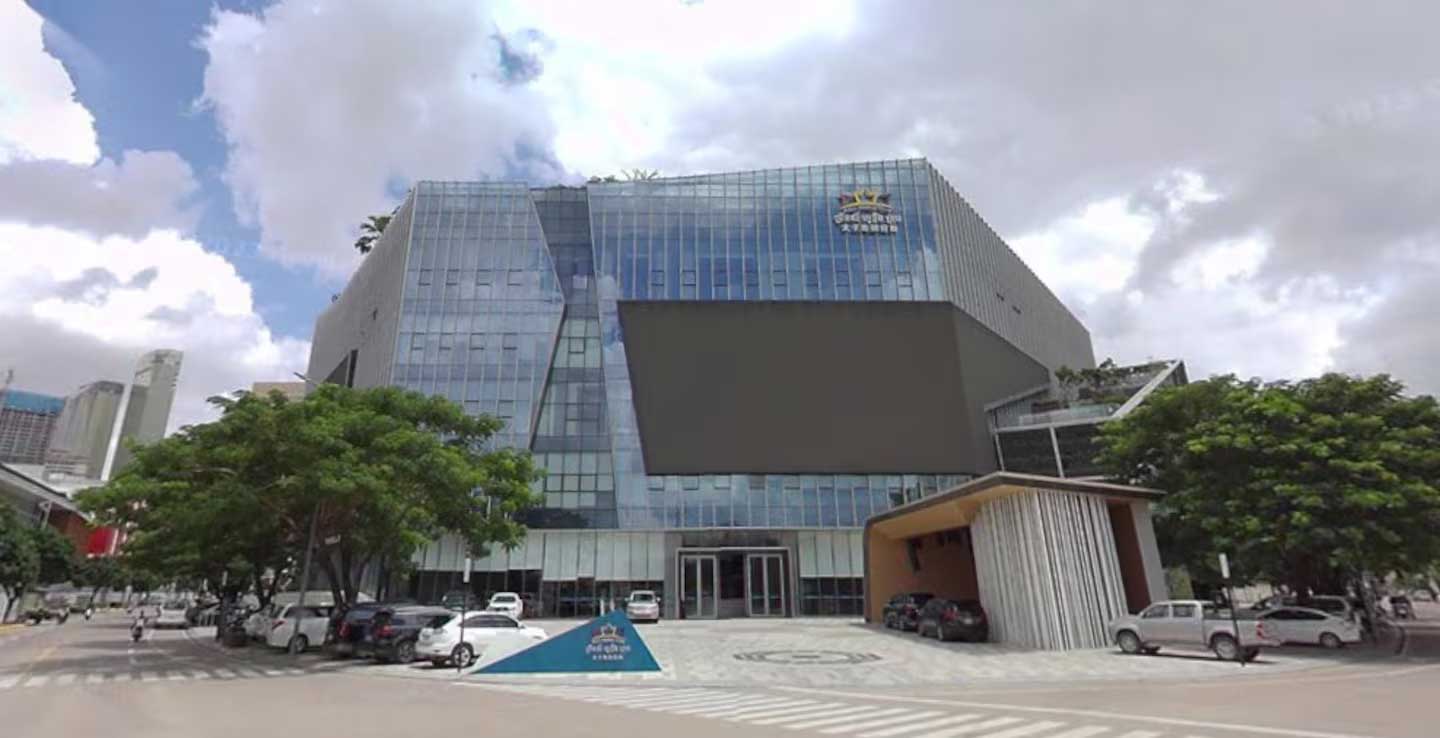
Too connected to jail?
The prosecutions against Prince’s alleged money mules and betting agents are part of a wider war on gambling announced by the Chinese government in 2018. Beijing views online casinos as a national security threat, estimating gambling to be responsible for 1 trillion yuan ($145 billion) in capital flight each year.
In January 2023, a Macau court sentenced Alvin Chau, one of the island’s most successful gaming tycoons, to 18 years in prison on 162 charges, including heading an organized crime group, fraud and facilitating illegal online gambling.
In August, nine Chinese-born Cambodians were arrested in Singapore as part of the city state’s largest ever money-laundering investigation. Prosecutors accused them of operating illegal gambling websites targeting mainland China. Observers noted that the crackdown came one week after Chinese Foreign Minister Wang Yi visited Singapore, suggesting that Beijing might have been behind the charges – especially since several of the accused had outstanding arrest warrants in China.
The Prince Group may present a more complex challenge for Beijing. The Chinese police and judiciary appear intent on pursuing a case that Prince and its subsidiaries constitute a criminal group. But the names of Chen and other senior figures in the group – many of whom are his uncles and cousins – have been wholly absent from any Chinese court judgments.
Where they remain present, however, is in the political fabric of China’s most reliable regional ally.
When regional heads of state converged on Phnom Penh in November 2022 for the Association of Southeast Asian Nations’ biannual meeting, Hun Sen presented them with limited-edition luxury watches valued at $20,000 apiece. The face of each timepiece was emblazoned with the name of Chen’s Cambodian watchmaker, Prince Horology.

Further afield, in his role as Hun Sen’s personal adviser – a position he has held since 2020 – Chen has accompanied him on a diplomatic mission to Cuba and doled out aid on the government’s behalf to neighboring Laos. He is also a personal adviser to former National Assembly President Heng Samrin and former Interior Minister Sar Kheng. Shortly after Hun Manet became Cambodia’s first new prime minister in four decades, Chen was named one of his 104 advisers. Those ranks give him a rank equal to minister.
Any attempt to charge Chen directly, then, would necessarily implicate Cambodia’s top law enforcement official and embarrass both the former and current prime ministers. Beijing spent decades of diplomatic effort and billions of dollars turning the Hun dynasty into one of China’s most ardent friends.
Sok Eysan, a spokesman for the ruling Cambodian People’s Party, said he could not comment and referred RFA to Cambodian government spokesman Pen Bona, who did not respond to multiple requests for comment.
Cambodian American academic Ear Sophal, who has authored books on Cambodia and China, told RFA it seems unlikely Chen will be heading to prison anytime soon.
“Clearly, someone’s untouchable,” Sophal said. “Is Chen Zhi trying to do something political in China? No. So it's okay, it's just money; his underlings will pay.”
